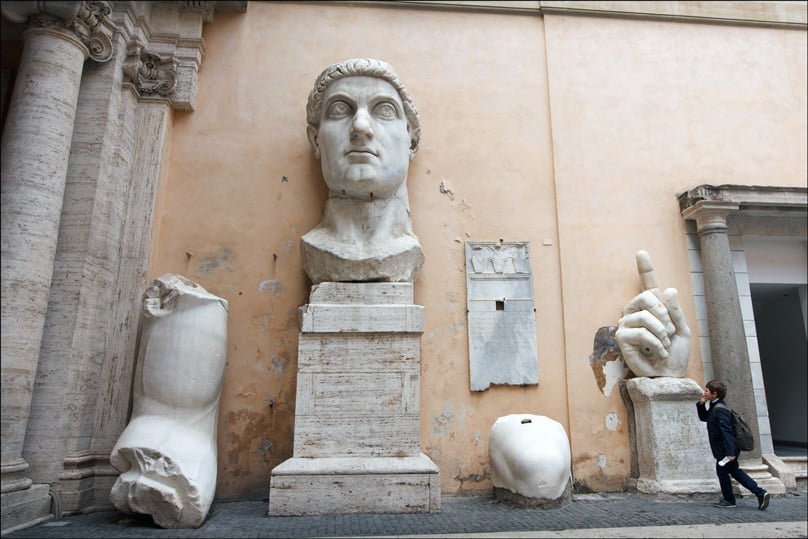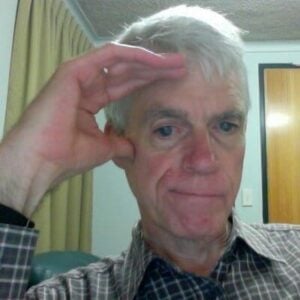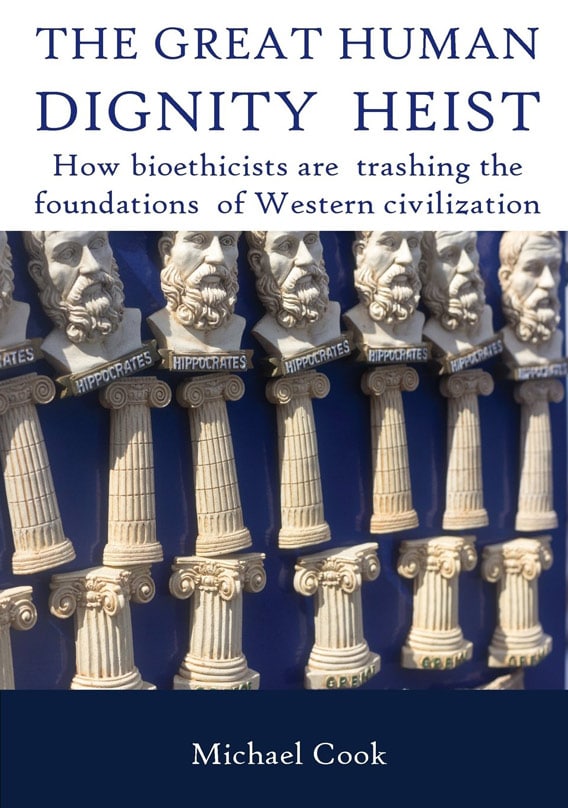
He’s one of the best commentators and news analysts this country has ever produced, and most Australians have never heard of him.
Michael Cook is the founder of the bioethics commentary website MercatorNet and is a Sydney-based writer whose playful style when tackling politics, science, morality and any number of other highly-charged subjects has endeared him to even the most hostile of interlocutors.
On his website—long since swelled by a bevy of other talented writers—he offers playful critiques of some the most celebrated thinkers and ideas of our times, pointing to holes where one might have expected circumspection and rigour to be.
On 10 August his new book, The Great Human Dignity Heist: How bioethicists are trashing the foundations of Western civilization, will be launched at NSW Parliament House by the Australian-Canadian ethicist, Prof Margaret Somerville.
Michael Cook spoke to The Catholic Weekly late last week about the book, the particular concerns that motivate him, and how he thinks Catholics might best engage the world around them.
The Great Human Dignity Heist? What’s all this about?

The book is a selection of my articles on bioethics in newspapers such as the Sydney Morning Herald, The Australian, and The Age and a website I edit, MercatorNet. I believe passionately in the dignity of every human being and I look for stories to convey that message. For example, in one of them, I describe how archaeologists discovered what they called “Middle Pleistocene human Cranium 14” deep in a cave in northern Spain. This skull was more than 500,000 years old and belonged to a 12-year-old girl with a terrible birth defect which would have left her severely intellectually and physically impaired. Yet these “primitive cave men” cared for her, nurtured her, fed her. Nowadays, what would civilised people like us do? Euthanise her, perhaps. I hope that stories like these make people think.
How did you get into bioethics?
I’m not a bioethicist. I am, I suppose, a bioethics journalist. I have no qualifications in bioethics, other than closely observing developments for several years as editor of an online newsletter about bioethics, BioEdge. So I come to the field as a layman equipped with facts, common sense, a strong belief in human dignity, and enough cheek to question the self-confident facade of the professionals.
The subtitle of the book is: “How bioethicists are trashing the foundations of Western civilisation.” A bit of an exaggeration?
Yes and no. Western civilisation is pretty robust and will survive bioethicists if it has managed to survive Miley Cyrus and George W Bush. But some of them—not all of them!—are white-anting the principles which undergird 2000 years of Christian culture. The sanctity of human life? A nonsense concept, according to the world’s best-known bioethicist, Peter Singer. Creating life in a Petri dish? Tick. Euthanasia for children? Tick. Abortion? Tick. Incest? Tick. Selling unborn babies through surrogacy? Tick. If we as a culture accept atrocities like these, what have we become?

What are the trends in our society that most worry you?
Two words: absolute autonomy. Autonomy—that a person should be able to do whatever he or she (only two sexes, please note) likes so long as they don’t hurt anybody—has become an unquestionable, almost religious, axiom. This is what people use to justify euthanasia, same-sex marriage, IVF, abortion, whatever. But autonomy is a deeply contradictory concept. On the face of it, it simply is not true. We live in a network of relationships which make us human. We learn how to speak, how to socialise, how to work, how to love from other human beings. If we were dropped in the sea a mile off Coogee Beach (in Sydney), most of us would die. The idea of absolute autonomy needs to have a stake put through its heart.
A Sydney bishop recently remarked that we all had our dogmas – religious and areligious people alike – and that the real danger came from not recognising it. How might Catholics write for or speak to people who don’t share our assumptions about human dignity and reason?
Good point. I feel it’s vitally important to find common ground with people who do not share my views. Surprise, surprise, sometimes I’m wrong and people whom I strongly disagree with point out the inadequacies in my work. But precisely because the line I take is grounded in my understanding of natural law, it starts from facts and reason. Hopefully we can agree on the facts and move from there. And I try not to be personally offensive. Life is hard enough without having to cope with insults.
How might Catholics best engage wider society so as to promote and defend human life?
It’s a hoary old chestnut, but vote early and often. Get involved in campaigns that appeal to you. Don’t keep your beliefs to yourself. Speak out. This isn’t Iraq. Nobody is going to crucify you.
You make serious, fact-laden arguments but always with a certain playfulness, sometimes verging on out-and-out frivolity. Where does your style come from?
I have a double life. Face-to-face I am I-can-watch-paint-dry boring. But why should bioethics be boring, too? I read a lot and have learned from writers like Evelyn Waugh, P G Wodehouse, Saki and Paul Johnson.
You’re not very complimentary to bioethicists in the book’s forward (“That sexy little prefix ‘bio’ has become a Kevlar vest for so-called experts who couldn’t score a job in the philosophy department of Monty Python’s University of Woolloomooloo.”). Are they really that bad? Who would you count as the most formidable of your ‘opponents’?
Well, a certain amount of exaggeration is involved there. But the number of bioethics courses is certainly multiplying and mutating. We now have utilitarian bioethics, animal bioethics, Catholic bioethics, feminist bioethics, Islamic bioethics, queer bioethics, global bioethics, progressive bioethics, transgender bioethics … sorry, I have to catch my breath. The problem is that there is no agreement on first principles.
As for my “opponents”, I would say that I have attacked the ideas of Peter Singer, Julian Savulescu (both Australians working overseas), and Udo Schuklenk, a Canadian. I hope there are no hard feelings.
Professor Schuklenk, by the way, wrote a blurb for the back cover of the book. He said that he disagreed with every word in it, but it was well written. That was most kind of him. I think it was Hilaire Belloc who wrote, “When I am dead, I hope it may be said, His sins were scarlet, But his books were read.”
And who do you most admire among proponents of human dignity?
There are many good writers. But if I had to select one, it would be Benedict XVI, I think. The clarity of his thought and the crispness of his expression is astonishing.
Is it hard to be on the losing side all the time? What motivates you to keep going?
All the time? Come on, lighten up! Around the world, most attempts to legalise euthanasia have failed. After nearly 20 years of lobbying, supporters of cloning have got precisely nowhere. Human embryonic stem cells are a big Nothingburger. India, Thailand and Cambodia have banned foreign surrogacy. There’s no lack of battles. But they keep your sword sharp.
The Great Human Dignity Heist: How bioethicists are trashing the foundations of Western civilization is published by Connor Court and is available from Mustard Seed Bookshop (02 9307 8350 or www.mustardseed.org.au) and from other good book retailers.
